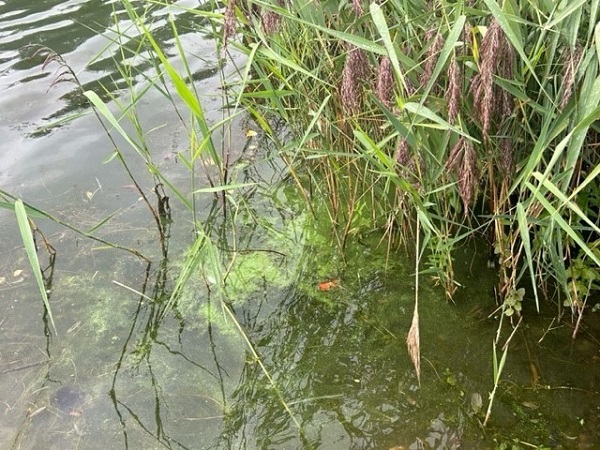 Credit: AGE
Credit: AGE
On Friday 1 September 2023, Luxembourg's Water Management Authority announced that the presence of blue-green algae has been observed in the ponds of Remerschen, resulting in a swimming ban and recommendation to avoid all nautical activities.
A significant proliferation of cyanobacteria, also known as “blue algae” was detected in the ponds of Remerschen during the regular monitoring of the quality of swimming water.
Certain species of cyanobacteria produce toxins that can lead to a health risk for humans, aquatic fauna, pets and livestock. For people, different disorders of variable nature and intensity may occur related to contact, ingestion or inhalation of these toxins. These can include headaches, skin irritation and/or burns or nausea.
The Luxembourg Institute of Science and Technology (LIST) was commissioned to carry out detailed analyses to determine the species composition of cyanobacteria and the presence of toxins. The analyses revealed the presence of the toxic cyanobacteria in the ponds of Remerschen, with an overrun of the safety threshold in microcystins.
For these reasons, and on the basis of the amended Grand-Ducal regulation of 19 May 2009 determining the special protection measures and the monitoring programmes for the state of swimming waters, a swimming ban was pronounced with immediate effect for the ponds of Remerschen.
Furthermore, the Water Management Administration, based on the assessment of the Health Directorate, recommends that the public:
• do not allow dogs and other pets to drink the water;
• avoid any contact with water;
• avoid all water activities (e.g. water sports, fishing);
• do not eat any caught fish.
If anyone has experienced any health problems following swimming in the Remerschen ponds during the past few days, they are advised to contact their doctor, mentioning any possible contact with toxic cyanobacteria.
Since the swimming season at the Remerschen ponds has not yet ended, a reopening by 15 September 2023 cannot be ruled out. The situation is being closely monitored and an update will be provided early next week.
With regard to the lake of Weiswampach, the lake of Echternach and the beaches of the Upper-Sûre lake, swimming remains, at this stage, authorised. Any possible prohibition concerning these two sites will be announced to the public: the current situation can be followed online at www.waasser.lu. Leaflets on the subject of cyanobacteria can also be downloaded there.









